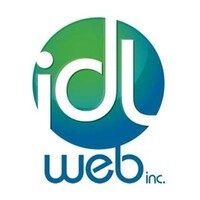HubSpot agencies are certified experts in using the HubSpot platform to help businesses achieve their marketing, sales, and customer service goals. They provide solutions tailored to the specific needs of companies to optimize their online presence and performance.
What Do HubSpot Agencies Do?
HubSpot agencies assist businesses in adopting and optimizing the HubSpot platform. They deliver personalized strategies to maximize return on investment and ensure measurable results.
Key Services Offered by HubSpot Agencies
Setup and Integration: Implementation and customization of the HubSpot platform according to specific needs.
Content Strategy: Creation and management of content aligned with the company’s objectives.
Marketing Automation: Establishment of workflows and automation of marketing campaigns.
Analytics and Reporting: Performance tracking and optimization based on data.
Training and Support: Training teams to ensure optimal use of the platform.
Importance of Local Expertise in Mississauga
Local expertise allows HubSpot agencies to better understand the challenges and opportunities specific to the Mississauga market. This ensures strategies tailored to the cultural and economic context of the region.
How Did We Rank the Best HubSpot Agencies?
Criteria Used for Evaluation:
Portfolio Quality: Analysis of completed projects and achieved results.
Client Reviews: Assessment of client satisfaction.
Industry Experience: Expertise in various sectors.
Understanding of the Local Market in Mississauga: In-depth knowledge of local needs.
Methodology for Selecting the Best Agencies:
We combined qualitative and quantitative analysis to identify the top-performing agencies. Our evaluation criteria included in-depth research, client interviews, and verification of HubSpot certifications.
Benefits of Working with a HubSpot Agency in Mississauga
How These Agencies Help Businesses Grow
HubSpot agencies help businesses increase their visibility, generate high-quality leads, and improve the efficiency of their marketing and sales teams. Their expertise ensures a coherent, results-oriented strategy.
Specific Benefits for the in Mississauga Market
By understanding the nuances of the Mississauga market, HubSpot agencies can design tailored campaigns that resonate with the local audience. They can also leverage local opportunities to maximize impact.
Tips for Choosing the Right Agency
Factors to Consider
Budget: Ensure that the services offered fit within your budget constraints.
Expertise in Your Niche: Look for an agency with experience in your industry.
Communication Style: Choose an agency with whom you have good rapport.
Questions to Ask During Consultations
What are your past results with similar businesses?
How do you measure the success of campaigns?
What is your experience in the in Mississauga market?
Importance of Alignment with Your Brand’s Goals
Choose an agency that understands your vision and long-term objectives. This ensures a harmonious collaboration and results aligned with your expectations.





